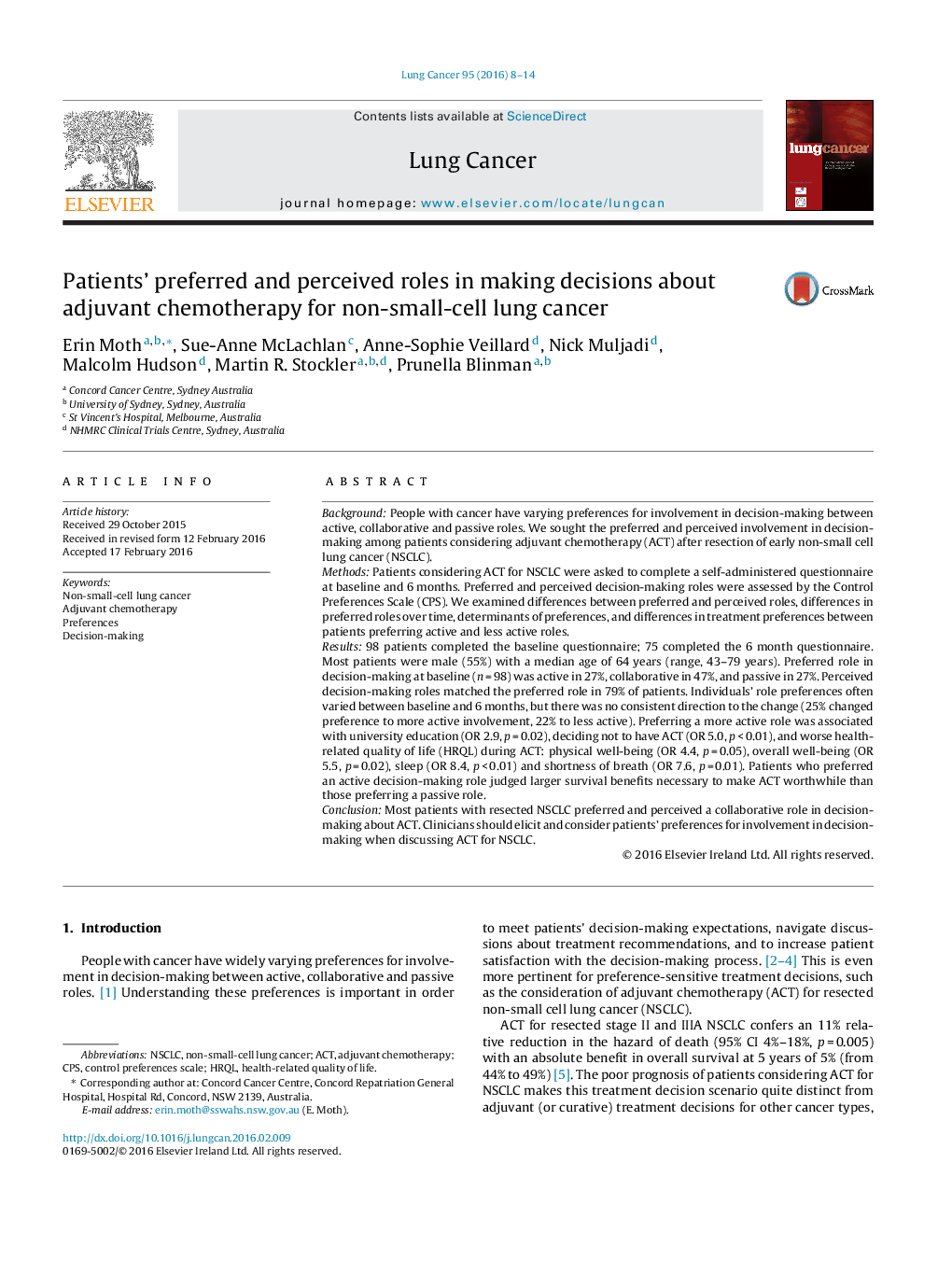| Article ID | Journal | Published Year | Pages | File Type |
|---|---|---|---|---|
| 2140415 | Lung Cancer | 2016 | 7 Pages |
•Almost half of NSCLC patients considering ACT prefer a collaborative decision-making role.•Most patients achieved their preferred role in decision-making.•Nearly half of the patients changed their role preference over time.•Clinicians should elicit and consider patients preferred role in decision-making
BackgroundPeople with cancer have varying preferences for involvement in decision-making between active, collaborative and passive roles. We sought the preferred and perceived involvement in decision-making among patients considering adjuvant chemotherapy (ACT) after resection of early non-small cell lung cancer (NSCLC).MethodsPatients considering ACT for NSCLC were asked to complete a self-administered questionnaire at baseline and 6 months. Preferred and perceived decision-making roles were assessed by the Control Preferences Scale (CPS). We examined differences between preferred and perceived roles, differences in preferred roles over time, determinants of preferences, and differences in treatment preferences between patients preferring active and less active roles.Results98 patients completed the baseline questionnaire; 75 completed the 6 month questionnaire. Most patients were male (55%) with a median age of 64 years (range, 43–79 years). Preferred role in decision-making at baseline (n = 98) was active in 27%, collaborative in 47%, and passive in 27%. Perceived decision-making roles matched the preferred role in 79% of patients. Individuals’ role preferences often varied between baseline and 6 months, but there was no consistent direction to the change (25% changed preference to more active involvement, 22% to less active). Preferring a more active role was associated with university education (OR 2.9, p = 0.02), deciding not to have ACT (OR 5.0, p < 0.01), and worse health-related quality of life (HRQL) during ACT: physical well-being (OR 4.4, p = 0.05), overall well-being (OR 5.5, p = 0.02), sleep (OR 8.4, p < 0.01) and shortness o
